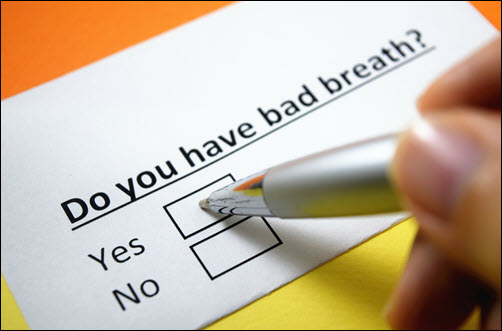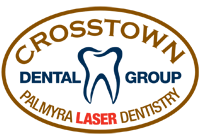What is Halitosis and How Can You Deal with It
Halitosis, also known as bad breath, is an issue that affects many people- regardless of their level of dental health and hygiene. While there are many causes of halitosis, at its root bad breath is the result of a buildup of bacteria. This bacterium creates an unpleasant odor, that is then released from the mouth.
Bad breath can also be caused by having a dry mouth. One of the jobs of saliva is to remove plaque from the mouth. You may have dry mouth due to medication, chemo/radiation, or perhaps from dealing with allergies that result in snoring. Some people have naturally drier mouths. This is due to a condition known as xerostomia, which causes odor buildup.
If you feel as though you are doing what you can to minimize this problem but with little or no success, you are not alone. It’s been found that 1 in 4 (25%) of the world’s population deal with chronic halitosis. But while it is a widespread concern, there are steps you can take to keep bad breath at bay.
 Being Proactive Against Bad Breath
Being Proactive Against Bad Breath
1. Drink more water. Because halitosis is a result of bacteria, one approach is to flush it out. The more water you drink the more you remove the bacteria. We have all been told to drink eight glasses of water a day. Recent health experts say drink half your body weight in ounces each day. Whichever approach you take, the more water you drink the lower the risk of bad breath.
2. Eat more apples. Eating apples helps to remove plaque from between the teeth. Also, the apple’s fibrous texture stimulates the gums and increases saliva production. Other foods known for fighting against halitosis are oranges, celery, and carrots.
3. Watch what you eat and drink. Foods such as onions, garlic, curry, alcohol, and coffee have strong smells that can linger in your mouth. If you love these items, then you can combat their effects by swishing a mixture of 2 parts water and 1 part apple cider vinegar for at least 30 seconds then spit it out. The ACV will neutralize the odor that comes from these foods.
4. Chew gum. Not the sugary stuff, but a sugar-free gum that contains xylitol. The gum will stimulate saliva production and help rid your mouth of small food particles and smelly bacteria.
5. Brush, scrape, floss, and rinse! Brushing your teeth at least twice daily is a given, but don’t forget your tongue. Use a scraper to gently scrub your tongue to remove any lingering bacteria. Then floss between your teeth. Always follow up scraping and flossing with a mouthwash that does not contain alcohol. There are prescription mouthwashes available, so talk to your dentist if you like OTC products are not working.
6. Minimize sugar intake. Plaque is caused by bacteria, and bacteria feed on sugar. Cutting out excess sugars will help reduce mouth odor. When you do have sugary foods/drinks be sure to swish with water and brush afterwards.
Make an Appointment with Your Dentist
Because bad breath can be caused by many factors, there is no ‘one-size-fits-all’ solution. But these proactive steps can make a difference. If you feel like you are doing all you can to combat halitosis, talk to your dentist. They can do some basic tests and work with you to determine what may be the cause. Once a cause is established, the problem can be treated more effectively.
You don’t have to suffer from the embarrassment caused by bad breath. Get the help you need by talking to one of our team members today.



